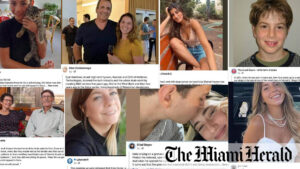Last week, I stepped into a parked, red Sienna mini-van with my friend Karen, to see if we were breaking up.
Karen and I had been close friends for years, made all the cozier by the fact that our same aged-boys were also friends. That is, until a few months ago when, powered by their moody adolescence, the boys started fighting. And fighting. And fighting. As our boys’ friendship veered into dangerous terrain, I was certain that my friendship with Karen would be next.
I tried to reason with my son. Could he not just get along and be nice for the sake of an important family friendship? (Answer: no.) Tension between the boys simmered on until my codependent self could stand it no more. Clearly, it was time for me to force upon them an awkward, risky heart-to-heart.
Karen and I sat at the kitchen island as I summoned Dr. Phil. The boys apologized. The boys processed. The boys emoted like champs. With tender hope, we celebrated the new era of peace and friendship.
The era ended darkly two playdates later, with lots of yelling and a game of Minecraft gone bad. The door slammed and I looked, miserably, at my husband. “They’re fine,” he said. “You and Karen are fine. There’s nothing more to talk about. Just leave it alone already.”
So I did. It took enormous restraint, but I kept my mouth shut. Even when, in the ensuing weeks, my son resisted her son’s magnanimous efforts to reach out.
Then I ran into Karen a few weeks later. She acted normal and happy to see me; I was consumed with angst, hunting for signs of change. Were we really going to ignore this thing? How could we? We couldn’t. Clearly, the fate of our friendship depended on it.
I sped home, ran into my study, and leveraged the twin evils of impulse and email. “I am so sorry to be avoiding the elephant in the room!” I typed at warp speed. On I went, gushing about my regret at my son’s refusal to rise to the occasion of the new era. How at a loss for words I was over this awkward, depressing situation. How hard I had tried to get him to see the light. How sorry I was that my son hurt hers!
I clicked send. I felt that little rush of dopamine you get when you’ve stirred the digital pot.
Twenty minutes later, my email dinged. Karen’s response nearly blew me off my ergonomic chair. She was shocked. And confused. “Why are you telling me this?” she said in a single, horrifying line. What did I expect her to do with this new information, besides feel crappy that things were worse than she’d realized? I stared at her last line, which seemed to echo with finality: “I do not know where to go from here.”
After about the tenth re-reading of my original email, I finally understood Karen’s huge reaction. My well-intended email, hell-bent on whipping up some intimacy and resolution, made the situation sound exponentially worse than it actually was. But now it was done, and there was no going back.
Remember seventh grade? That horrendous period of your life where friendships routinely took horrible, heart-stopping turns? One moment, you and your bestie were all cozy, all shelter in the storm. The next, you were hanging off a cliff, reeling with regret and wonder at a crime you didn’t understand?
Is not one of the glorious gifts of our age to know how to not get ourselves tossed off the cliff?? To be able to keep long, stable friendships from taking horrible, unexpected turns?
And yet, here I was, sitting before my computer, right on the edge of a half a century of life. Instantly unraveled into my quivering 13-year-old self. Dumbfounded. Actually, just dumb. And desperate in that raw, vulnerable seventh grade way to fix the situation immediately.
Two days later, I crept into the mini-van sitting cold in Karen’s driveway, the comic-tragic site of our entirely unexpected, awkward, risky Dr. Phil session.
I settled into the leather seat, holding my giant mug of coffee with both hands for moral support. Then Karen put her coffee down, and proceeded, in her ever-wise, ever-loving way, to share with my seventh grade/almost 50 year-old self some lessons that many of us here in mid-life could learn from:
1) Email is evil. Email distorts. Pouring your heart out — whether in love or rage — and clicking send, no matter how clear you think your intentions are, can run a friendship off the cliff just like passing that note in seventh grade. For God’s sake, how many digital horror stories do we need to hear to believe this? Let this be your last.
2) Honesty is not always the best policy. To some of us, true friendship means honesty at any cost. To others, honesty means respecting the boundary between Column A (the things you can control) and Column B (the things you can’t).
3) True Friendship means different things to different people. One person’s quest for intimacy is another person’s violation of boundaries. To some people, getting close means excavating the truth, mulling it over, emerging dewy with personal growth. To others, great friendship means peace and harmony, even if that means shielding them from bad news. When it comes to friendship, there’s a line between hiding the truth and protecting someone from it. Find out which side your friend lives on.
4) People have different ways of managing anxiety. Some people manage their anxiety by sharing and processing information. Others manage through the careful curating of information. Don’t impose your way on others.
5) Be teachable. No matter how evolved we think we are, no one has as much to teach us about friendship as the people we love. When we allow our friends to be our teachers, we win.
I shut the door of Karen’s minivan, dazed, raw, and a tiny bit smarter. I got my transformation; just one I didn’t know I needed. My middle-aged self did serve me well in the end, though. With the resilience and experience of decades, both Karen and I knew that this too would pass. Thank God, just like seventh grade.
This article was originally published in HuffPost.





